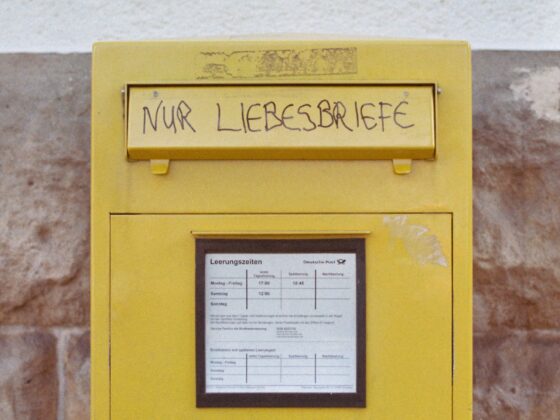
For many, the holiday season is synonymous with shopping lists, gift wrapping, and crowded malls. But for Gen Z and Millennials, the new holiday wish list looks different. This year, it’s less about presents and more about boarding passes in hand.
According to PwC’s 2025 Holiday Outlook report, travel is proving to be one of the great exceptions to an otherwise restrained spending season. Even as consumers cut back on discretionary purchases, more than half (55%) of Gen Z and Millennials say they plan to travel around the holidays. They are choosing experiences and connections over material goods, redefining what the “season of giving” means in an era of digital habits and shifting values.
From Shopping Sprees to Shared Experiences
This shift toward experiences isn’t new, but it’s accelerating. For younger generations, travel is an extension of identity. Something to post, share, and remember, rather than simply consume. They see travel as self-care, adventure, and even social currency.
Millennials helped set this trend in motion years ago, favoring experiences over things, but Gen Z is taking it further. They are more spontaneous, more digitally fluent, and more likely to prioritize emotional well-being and time with loved ones over material excess. PwC’s Holiday Outlook report shows that while average holiday spending is expected to drop by about 5% overall, travel budgets have remained steady.
For travel and hospitality leaders, it means that even in a cost-conscious season, demand stays strong wherever travel brings people closer together. This signals a profound mindset shift: even in a tighter economy, many younger consumers see travel as essential, not indulgent. And they’re redefining value not by discounts, but by meaning – whether that means a cross-country trip to see family or a weekend getaway with friends.
AI: The New Travel Agent
One of the most striking developments this season is how technology is reshaping travel planning. From personalized destination suggestions to automated flight comparisons and real-time price tracking, Gen Z and Millennials are increasingly relying on generative AI to guide their travel decisions. Chatbots help them compare hotel options, summarize reviews, and even build day-by-day itineraries in seconds. In fact, PwC’s Holiday Outlook report reveals 76% of Millennials say they are likely to use an AI agent tool for travel recommendations.
This tech-first behavior is changing how travel brands should engage. Booking platforms, airlines, and hospitality companies can no longer depend solely on glossy ads or loyalty programs to win over customers. Instead, success hinges on whether their offers appear and resonate in the AI-powered planning tools these younger consumers now rely on.
In other words: If your brand isn’t visible in the AI-powered planning journey, you’re invisible to the next generation of travelers.
Generational Differences, Shared Intent
PwC’s data also highlights clear differences in how generations approach holiday travel.
- Gen Z tends to book closer to departure, often seeking flexible options and social experiences that align with their values – sustainability, authenticity, and cultural connection.
- Millennials, now balancing careers and young families, lean toward value-conscious choices, often using AI or mobile platforms to stretch budgets while maintaining comfort.
- Gen X and Boomers, meanwhile, are more traditional in their planning habits, prioritizing convenience, safety, and predictability.
But despite these differences, a unifying theme emerges: the desire to make memories, not accumulate things. Travel is becoming one of the ultimate expression of that philosophy.
What This Means for the Travel and Hospitality Industry
For airlines, hotels, and travel platforms, the implications are clear. The rise of “experiential spending” and AI-enabled travel planning requires a fundamental rethink of customer engagement.
- First, data and personalization are no longer optional. Travelers expect brands to know them – their preferences, budgets, and values – and to respond in real time. Companies that can combine data-driven insights with a personal touch can be better positioned to deliver seamless, meaningful travel experiences.
- Second, digital trust and transparency matter more than ever. Younger travelers expect clear communication about pricing, sustainability, and safety. They’re quick to reward authenticity and equally quick to disengage if they sense inaccuracy or insincerity.
- Third, collaboration will shape the next travel ecosystem. AI-driven planning tools are already influencing how consumers choose destinations, compare airlines, and select accommodations. Travel brands and tech platforms should need to work together to stay visible in travelers’ search results.
- Finally, sustainability is a purchase driver. Gen Z in particular seeks eco-conscious choices, from carbon offsets to locally rooted experiences. Brands that align travel offerings with responsible practices will earn not just bookings, but loyalty.
Redefining the Holiday Season
The 2025 holiday season underscores a deeper truth: the meaning of the holidays is evolving. For many younger travelers, joy isn’t found in the exchange of physical gifts but in shared moments. Whether that’s a family reunion halfway across the country or a spontaneous escape to recharge before the new year. And while inflation and cost pressures are reshaping consumer habits, the persistence of travel spending suggests that experiences remain recession resistant. When the choice is between another sweater and a weekend away, younger consumers are clear about what matters most.
The Path Forward
The hospitality and transportation industries are at a crossroads. They can continue to market to travelers the way they always have, or they can meet the next generation where they already are: in AI-powered recommendation engines, digital communities, and the mindset of meaning over material. For transportation and logistics leaders, this is about understanding the emotional and technological journeys that now define travel itself.
For businesses willing to evolve, the opportunity is enormous. Travel brands that can deliver personal, tech-smart, and memorable experiences can capture bookings this holiday season and build lasting relationships with the consumers shaping the future of travel. Because for Gen Z and Millennials, wanderlust isn’t just a phase. It’s a way of life.









